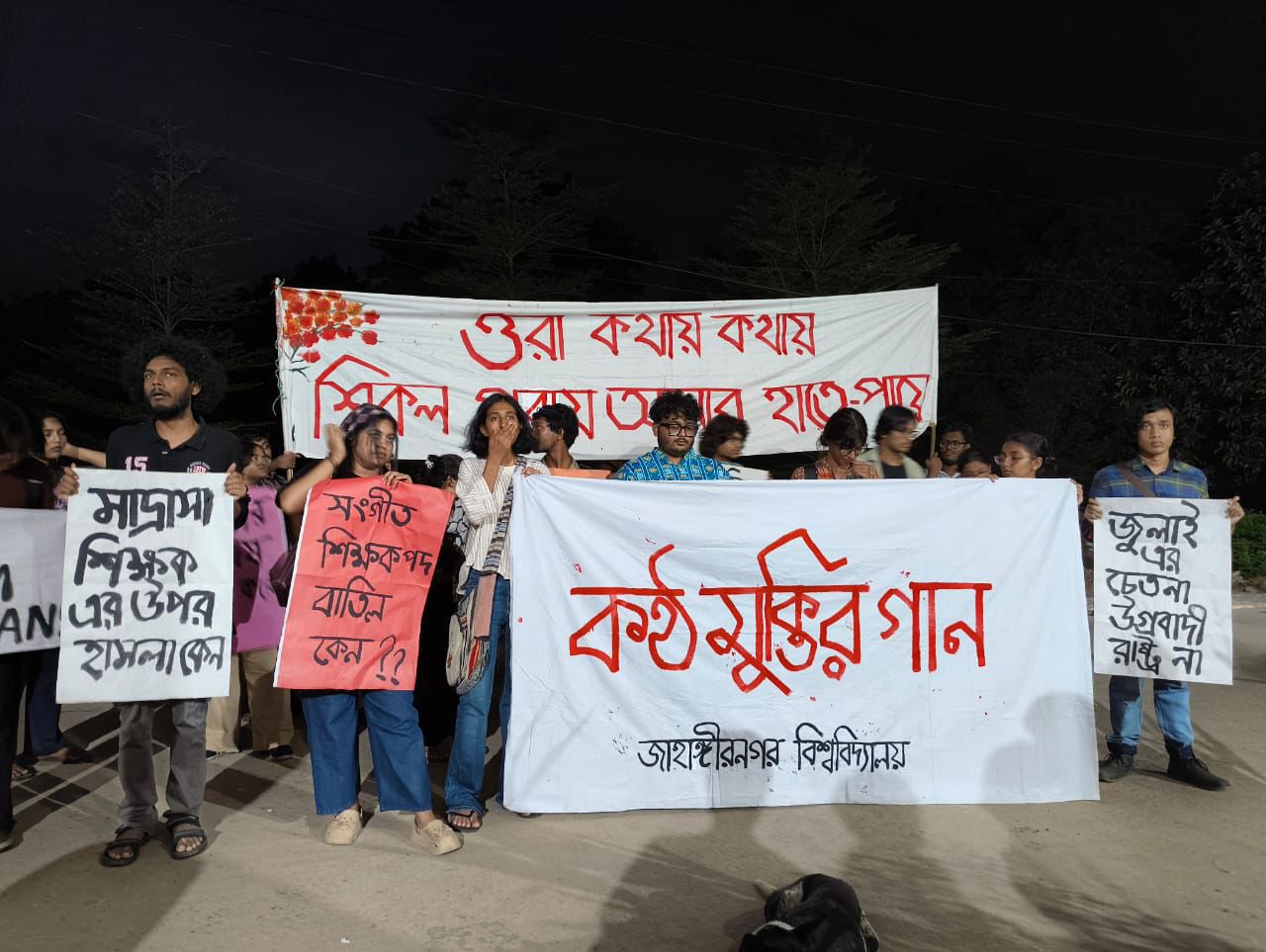No songs, no play: A policy against our children

The government's recent decision to abolish the newly created posts of Music and Physical Education Teachers in primary schools has sparked concern among educators, cultural activists, and child rights advocates across Bangladesh. The move not only reverses a progressive initiative but also undermines the holistic development of children and contradicts the country's national and international commitments to education and child rights.
On November 3, 2025, the Ministry of Primary and Mass Education issued a revised gazette notification cancelling two teacher positions, i.e., Music and Physical Education, earlier approved under the Government Primary School Teacher Recruitment Rules 2025. These posts, introduced in 2020 and approved by the Ministry of Public Administration in 2024, aimed to strengthen children's physical and mental development while fostering cultural values and creative learning.
When the two positions were first approved, the initiative was widely welcomed by educationists and civil society alike. It marked a long-overdue acknowledgment that education is not confined to literacy and numeracy alone but must also embrace culture, empathy, creativity, and national identity as integral to a child's development. Unfortunately, bowing to pressure from a few religious groups who objected to the inclusion of these subjects, the government has since reversed the decision, a move many now regard as regressive, short-sighted, and contrary to the spirit of inclusive and holistic education.

Contradiction with national policies and child rights
This reversal clearly contradicts Bangladesh's National Education Policy 2010, which envisions education as a tool for moral, social, and cultural development. The policy explicitly includes music, arts, crafts, and physical education as part of primary learning to ensure children's creative and emotional growth.
Similarly, the National Children Policy 2011 guarantees every child the right to recreation, cultural participation, and sports—essential components of holistic development. The United Nations Convention on the Rights of the Child (UNCRC), ratified by Bangladesh in 1990, reinforces these commitments. Articles 29 and 31 of the Convention oblige states to promote children's fullest physical, mental, and cultural potential and ensure their right to participate in artistic and recreational activities.
By removing these teaching posts, Bangladesh risks breaching not only its national policy promises but also its obligations under the UNCRC and the Sustainable Development Goals (SDG 4), which call for inclusive, equitable, and quality education that nurtures creativity and humanistic values.
Why cultural and physical education matter
Cognitive and emotional growth
Music and physical activity stimulate brain development, enhance concentration, and foster emotional balance. Through music, children learn empathy, imagination, and self-expression; through physical education, they cultivate discipline, teamwork, and resilience --qualities that contribute to both academic excellence and social harmony.
Even in several Muslim-majority countries such as Malaysia, Indonesia, and Turkey—music remains an essential part of the curriculum, demonstrating that cultural education can be maintained alongside religious instruction.
Physical well-being
In today's world of digital addiction and sedentary routines, physical education serves as a lifeline for children's health. It combats obesity, stress, and inactivity, nurturing lifelong habits of physical fitness and mental well-being. Active children grow into confident, energetic citizens who can contribute meaningfully to society.
Cultural and national identity
Bangladesh's identity is deeply rooted in its rich artistic and musical traditions from the melodies of Lalon, Rabindra and Nazrul Sangeet to the rhythms of folk music that echo the spirit of the land. During the 1971 Liberation War, music was not merely art, it was a weapon of inspiration and unity. Patriotic songs lifted the morale of the freedom fighters and millions of freedom-loving people. Music became the language of resistance, courage, and hope. To deprive children of this cultural inheritance is to disconnect them from the very spirit that gave birth to our nation.
Social and civic skills
Cultural and sports activities cultivate cooperation, leadership, and respect for diversity. When children perform together or play as a team, they learn the essence of democracy—listening, sharing, and supporting one another. These experiences nurture socially responsible and empathetic citizens, values that lie at the heart of peace and civic harmony.
Equity and inclusion
Cultural and physical education are great social equalizers. They provide inclusive spaces where children from all socio-economic backgrounds and of all genders participate equally. Such activities break barriers, challenge stereotypes, and promote mutual respect, thereby reinforcing the national commitment to equality and social justice.
A rights-based and humanistic approach to education
Education must serve the best interests of the child, as guaranteed by the UN Convention on the Rights of the Child (UNCRC) and reaffirmed in Bangladesh's National Education Policy 2010. By limiting education to rote learning and academic grading, we risk stripping it of its humanistic and creative essence.
A balanced education, one that integrates arts, culture, and physical well-being does more than produce skilled workers; it shapes compassionate, thoughtful, and resilient citizens. Music and physical education help children understand themselves and others, build confidence, and foster harmony in an increasingly divided world. To abolish these opportunities is not simply an administrative adjustment, it is a policy regression that undermines the nation's cultural legacy, children's rights, and the vision of a progressive Bangladesh.

The way forward
Globally, in many high‑income and lower‑income countries, music and physical education are included in the primary or early-years curriculum, underscoring that these subjects are integral to a child's holistic education rather than optional extras. Even in several Muslim-majority countries such as Malaysia, Indonesia, and Turkey—music remains an essential part of the curriculum, demonstrating that cultural education can be maintained alongside religious instruction.
The government should reconsider this decision through a broad-based and inclusive dialogue involving educators, child rights experts, civil society, and cultural practitioners. A modern, forward-looking education system must celebrate diversity, foster creativity, and promote mutual respect, while remaining sensitive to the nation's faith, traditions, and social values.
Bangladesh's true progress depends not only on technological or economic development but also on its ability to nurture a generation grounded in empathy, cultural awareness, and humanity. Music and physical education are not peripheral subjects; they are essential instruments for cultivating tolerance, teamwork, and a spirit of communal harmony among future citizens.
A truly enlightened and inclusive education policy must be pluralistic, ensuring that every child, regardless of gender, religion, ethnicity, or socio-economic background, can learn, play, create, and grow in an environment that celebrates diversity, nurtures understanding, and pursues excellence. Only through such a system can Bangladesh cultivate a generation that values harmony over division and creativity over conformity.
Khandaker Lutful Khaled is an education and child rights activist and a former staff member of the United Nations Children's Fund (UNICEF).
Send your articles for Slow Reads to slowreads@thedailystar.net. Check out our submission guidelines for details.



 For all latest news, follow The Daily Star's Google News channel.
For all latest news, follow The Daily Star's Google News channel. 

Comments